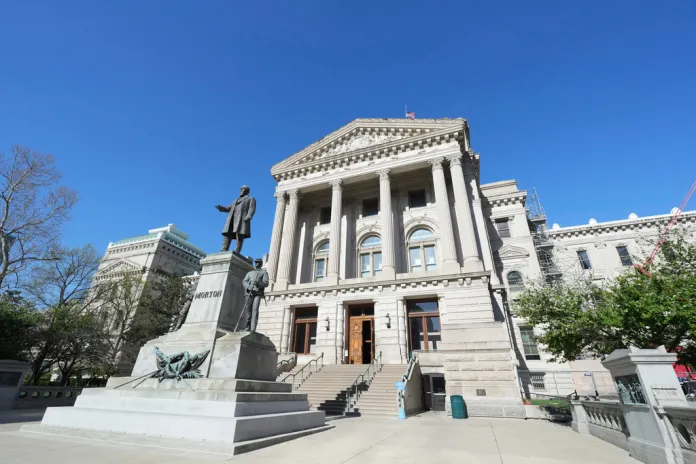Indiana AG Launches Investigation Into Notre Dame’s DEI Regime
Indiana Attorney General Todd Rokita has initiated an investigation into the University of Notre Dame, alleging potential civil rights violations related to its diversity, equity, and inclusion (DEI) policies. In a letter to Notre Dame’s president, rev. Robert A. Dowd, Rokita expressed concerns that the university may violate state and federal civil rights laws by implementing policies that treat individuals differently based on race or ethnicity and employ racial stereotyping.
Rokita emphasized Indiana’s commitment to not tolerating racial discrimination in education, asserting that fairness requires individuals to be judged solely on their merits. He warned that universities like Notre Dame could face challenges to their nonprofit status if found to be in violation of racial equality principles. The university’s 2023 Strategic Framework reportedly focuses on increasing representation from “underrepresented” groups and highlights issues related to race and racism on campus.
Additionally, the AG’s office raised concerns about the potential for racially segregated recognition ceremonies for graduates. Rokita’s inquiry includes questions regarding Notre Dame’s compliance with a recent Supreme court decision that deemed affirmative action unconstitutional. The university has until June 9 to respond to the inquiry.Even though Notre Dame did not comment directly on the allegations, it stated that it does not engage in unlawful discrimination and seeks to reflect the broader Catholic Church’s diversity.
The investigation reflects a growing scrutiny of DEI initiatives in higher education, as similar inquiries have been launched by the U.S. Department of Education against Notre Dame and other institutions.
Indiana Attorney General Todd Rokita, R-Ind., launched an investigation into the University of Notre Dame on Thursday, citing potential civil rights violations stemming from its diversity, equity, and inclusion (DEI) regime.
Citing publicly available documentation, as well as the school’s 2023 Strategic Framework, Rokita sent a letter to Rev. Robert A. Dowd, Notre Dame’s president, suggesting the school might be violating state and federal civil rights laws because it “may be governed by University policies that treat individuals — including students, prospective students, faculty, staff, and job applicants — differently based on the individuals’ race or ethnicity; employ race in a negative manner; or utilize racial stereotyping,” according to the letter.
“Indiana will not tolerate racial discrimination in education under the guise of DEI,” Rokita said in a press release. “Fairness demands that every individual be judged on their merits, not the color of their skin. Notre Dame’s DEI policies raise troubling questions about whether, in its pursuit of DEI goals, the university may be crossing the clear line that Indiana law draws against racial discrimination. I am seeking answers.”
Rokita said that nonprofit universities, like Notre Dame, that violate moral and legal principles against racialized regimes could see their nonprofit status, and therefore tax exempt status, challenged.
In the school’s 2023 Strategic Framework, the school explicitly points to efforts to increase student and faculty numbers from “underrepresented” groups (read: not white), and track enrollment in classes taught by faculty members who “look like” those non-white students.
As the letter notes: “The Framework indicates that the University understands diversity largely in racial terms, placing emphasis on the work of campus organizations like the ‘Initiative on Race and Resilience’ and calling for an assessment of ‘race and racism’ within and without the University’s campus.”
The attorney general’s office also points to potential racially segregated “multicultural recognition ceremonies” for graduates who may want to celebrate their achievement away from other races. Rokita’s letter asks the school how it determines who is invited to the ceremonies.
Other concerns cite the U.S. Supreme Court’s decision in Students for Fair Admissions v. Harvard (SFFA), which made racialized admissions schemes like affirmative action unconstitutional. “The Court rejected the notion that taking race into account in admissions permissibly serves the supposed interest in ‘producing new knowledge stemming from diverse outlooks,’” the letter states.
“To qualify as an organization operating for charitable purposes or the public benefit, an entity’s ‘purpose must not be so at odds with the common community conscience as to undermine any public benefit that might otherwise be conferred.’ It is beyond question that ‘racial discrimination in education violates deeply and widely accepted views of elementary justice’ in Indiana and the United States,” the letter states. “Accordingly, a nonprofit university that engages in racial discrimination is not ‘organized for a public or charitable purpose’ within the meaning of Indiana law, and any racial discrimination in which it engages represents an unlawful ‘abuse [of] authority.’”
Rokita asked a series of questions pertaining to Notre Dame’s compliance with SFFA, its consideration of race in hiring and admissions, and how it plans to recruit more “underrepresented” students, among other items, in order to “help determine whether further action is warranted to ensure it is operating consistently with the terms of its nonprofit status and Indiana’s commitment to racial equality.”
The school was given until June 9 to comply.
While Notre Dame did not respond to a request for comment from The Federalist, it did release a statement, according to the South Bend Tribune.
“Notre Dame is a premier Catholic research university, and as such, seeks to serve and reflect the broader Catholic Church, which is the world’s most global, multicultural, and multilingual institution,” the school reportedly said. “We do not engage in unlawful discrimination in our hiring or admissions processes and look to attract the best and brightest to our campus.”
However, that statement appears to lend itself to Notre Dame’s history of conflating Catholic social teaching with the ends of DEI, as The Federalist reported.
Despite Notre Dame being a trusted institution by conservatives and Christians and remaining one of few Catholic schools committed to hiring Catholic faculty, it has nonetheless undermined its Catholic mission at the altar of DEI.
It also appears obstinate in doing so, as just days before President Donald Trump’s inauguration — coming off an election won in part fighting against DEI ideology — Notre Dame Provost John McGreevy told the school’s faculty major school priorities remain blindly increasing “the number of women and underrepresented minorities” and that those DEI goals were “equally important” to hiring Catholic faculty.
In March, the U.S. Department of Education launched an investigation into Notre Dame, along with many other schools, for similar reasons.
Breccan F. Thies is a correspondent for The Federalist. He previously covered education and culture issues for the Washington Examiner and Breitbart News. He holds a degree from the University of Virginia and is a 2022 Claremont Institute Publius Fellow. You can follow him on X: @BreccanFThies.
" Conservative News Daily does not always share or support the views and opinions expressed here; they are just those of the writer."




